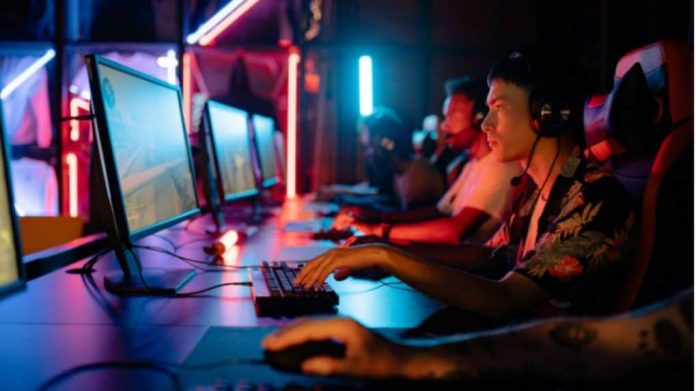The government has officially introduced and passed the Promotion and Regulation of Online Gaming Bill, 2025 in Lok Sabha, marking a landmark legislative move that seeks to simultaneously regulate, promote, and prohibit aspects of India’s booming online gaming sector.
The Bill, which was tabled by Union Minister Ashwini Vaishnaw and passed in the Lok Sabha outlines a dual-purpose framework: it aims to promote innovation in e-sports and educational gaming, while imposing a blanket ban on all forms of real-money online gaming (RMG) — regardless of whether they are skill-based or chance-based.
This sweeping legislation is likely to reshape the country’s digital entertainment and gaming landscape, affecting major gaming platforms, fintech payment systems, advertising, influencers, and users alike.
What the Bill Seeks to Do
The Bill introduces a national-level legal framework with four key goals:
-Promote the development of e-sports and social/educational gaming.
-Regulate digital gaming platforms and recognise legitimate games.
-Prohibit all forms of online money gaming, including advertisements and fund transfers.
-Protect youth and vulnerable groups from financial, psychological, and social harm caused by real-money gaming.
Key Definitions Under the Bill
Online Game: Any digital or electronic game accessed via internet or devices.
Online Money Game: Any game (skill, chance, or both) that involves depositing money or stakes in the hope of winning monetary or equivalent rewards.
E-sports: Recognised skill-based digital sports played competitively, with no stakes involved.
Social Games: Non-wager-based games meant for entertainment, learning or recreation.
Notably, e-sports and social games are carved out from the ban, and the Bill encourages their growth through institutional support.
What the Bill Bans — And How
The legislation completely prohibits:
-Offering or facilitating online money gaming.
-Advertising or promoting real-money gaming — even via influencers or celebrities.
-Processing payments for online money games (banks and financial intermediaries included).
Violations attract severe penalties:
-Jail term up to 3 years.
-Fines up to ₹2 crore for repeat offences.
-Cognizable and non-bailable offences — meaning arrest without warrant is allowed.
Search, Seizure, Surveillance
The Bill also grants broad enforcement powers:
-Search and arrest without warrant.
-Covers physical and digital spaces — including devices, servers, and virtual environments.
-Enables content blocking (under IT Act, Sec 69A) of platforms violating the ban.
This is a major expansion of authority, echoing provisions typically reserved for national security or cybercrime cases.
What’s Allowed — and Encouraged
While the Bill takes a hard line on money gaming, it offers a growth framework for other segments:
E-sports: Will be registered and promoted like traditional sports, including training academies and incentive schemes.
Educational/Social Games: Encouraged for digital literacy, skill-building and entertainment — as long as no monetary stakes are involved.
A new Regulatory Authority will oversee game classification, platform compliance, and handle complaints.
Why This Matters
India’s online gaming industry has exploded in recent years, attracting over 400 million users, with rapid growth in fantasy sports, rummy, poker, and betting apps. Industry stakeholders estimate the sector’s market size at over ₹20,000 crore, with startups and global firms heavily invested.
However, the government cites mounting concerns:
-Addiction and mental health issues, particularly among youth.
-Financial ruin among vulnerable groups.
-Alleged links to money laundering, tax evasion, and even terror financing.
Citing these “grave social, economic and psychological consequences,” the Bill concludes that regulation alone is insufficient — and that prohibition is the only effective safeguard.
What Happens Next?
The Bill, introduced in the Lok Sabha, must now pass both Houses of Parliament. Once enacted, it will:
-Override all existing state laws on online gaming.
-Apply to both domestic and foreign platforms targeting Indian users.
-Likely face legal challenges from the industry and possibly states, citing federal overreach and business impact.
Industry Reactions & Implications
-Startups and platforms may need to shut down or pivot.
-Advertisers and influencers could face liability for endorsing RMG platforms.
-Banks and payment apps will need to implement stricter transaction monitoring.
-Consumers will lose access to real-money games, even if skill-based.
While the Bill supports innovation in safe gaming, it leaves no room for fantasy sports, real-money poker, or rummy – regardless of the legal arguments around “games of skill.”
The Online Gaming Bill, 2025 represents the most ambitious and restrictive overhaul of India’s gaming regulation landscape to date. By drawing a hard line between safe entertainment and high-risk real-money play, the government has chosen public safety and state control over business freedom and innovation in RMG. Its true impact will depend on implementation, judicial scrutiny and how both players and platforms respond to this high-stakes reset.
